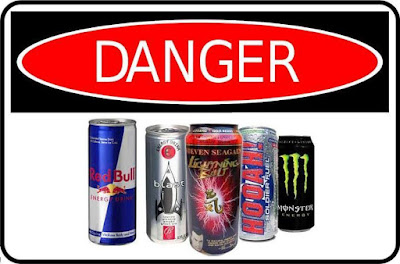Energy drinks and health
Energy drinks are a kind of beverage or liquid refreshment that provides mental and physical stimulation. Energy drinks contain a wide variety of ingredients, and many have a lot of side effects than other beverages which contain only caffeine.
The safety of these energy drinks is now a popular issue, as even kids and teenagers who are below the regulated age limit universally now consume it.
Below are the major energy drinks ingredients and their adverse effects:
1. Sugar
The American Heart Association (AHA) prescribes that the amount of added sugars you should consume in a day are;
Men: 150 calories per day (37.5 grammes or 9 teaspoons).
Women: 100 calories per day (25 grammes or 6 teaspoons).
The nutritional value of sugar in energy drinks averages at 27 grammes; this means if you consume two energy drinks, that is excess and can overload and damages your liver, tricks your body into gaining weight, causing you to eat more and develop insulin resistance. It also increases your uric acid levels. High uric acid levels are a risk factor for heart and kidney disease.
2. Caffeine
For healthy adults with no medical problems, it is generally advised that 300mg - 400mg of caffeine can be consumed daily without any adverse effects.
But a bottle or can of energy drink contain an average of 242 milligrammes per serving, so a person that consumes two energy drinks a day is at a risk of health conditions such as increased blood pressure, increased risk of heart attack, gouts, incontinence, and possibly insomnia.
3. Sodium
The American Heart Association (AHA) recommends no more than 2,300 milligrammes (mgs) a day and an ideal limit of no more than 1,500 mg per day for most adults.
A can or bottle of energy drink contains an average of 180 mg of sodium. So, if you take with the other foods which contain a teaspoon of salt that has 2,300 milligrammes of sodium, that’s already an excess.
What happens when Sodium is contained in excess in your body system?
A person with high amount of sodium intake risks health conditions such as chest pain, trouble breathing; a light-headed feeling, like you might pass out; swelling in your hands or feet; tiredness, muscle twitching; confusion, uneven heart rate, extreme thirst, increased or decreased urination, leg discomfort, muscle weakness or limp feeling.
We have discussed the three major ingredients found in all energy drinks, the important question you may want to ask is, are energy drinks safe for consumption? I would say drink them, like many other beverages, moderately. Search for the healthiest energy drink.

Comments